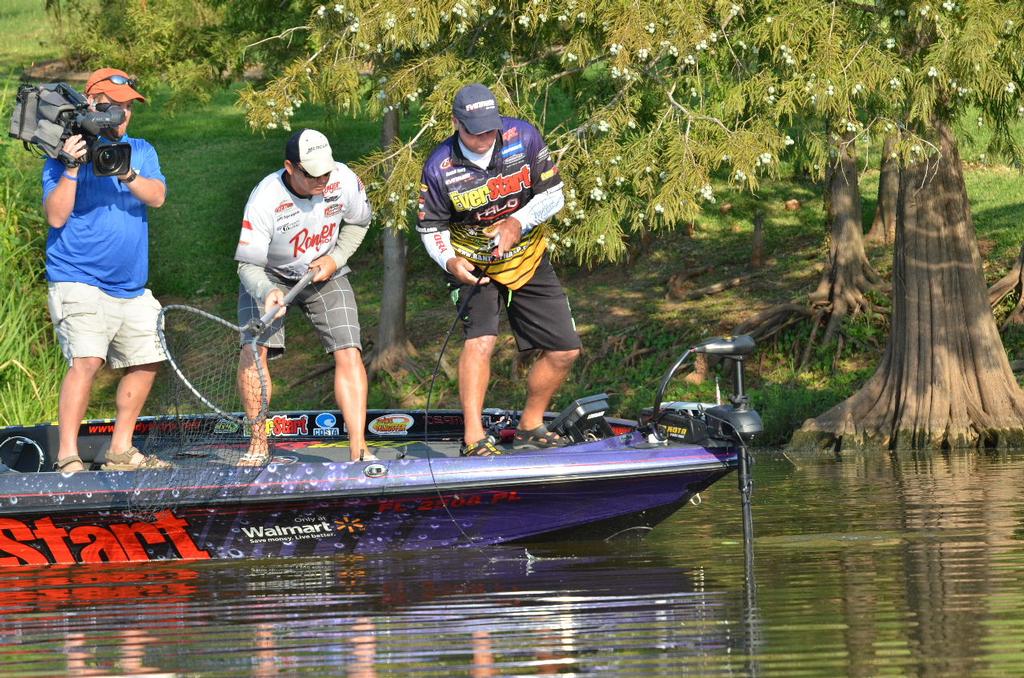2013 Forrest Wood qualifying round blog
Overcoming challenges on the Red River

SHREVEPORT-BOSSIER CITY, La. – This is my first trip to the Red River, and what I saw on the water in the opening two rounds surprised me. For starters, the backwaters are much more accessible than I expected. I honestly envisioned narrow ditches that were more mud than water, where push poles and horsepower would be the keys to gaining access. I’ve seen a few backwater areas that are choked off with vegetation or silted in too much to access, but I’ve also seen many that are open and easy to enter – assuming pros take it slow and dodge some stumps.
I also expected most of the field to vanish into backwater labyrinths. They certainly haven’t. In the two days I’ve spent watching the tournament on Pool 5 (the takeoff pool), it’s been very easy to find most anglers in the field. Most are on the main river fishing reed banks or rock jetties, or targeting backwater channel openings where current created by falling water is concentrated. And the pros that are fishing backwaters can only stay in one spot so long before taking off down the river to the next spot, so there aren’t many anglers I haven’t at least gotten a glimpse of this week.
The biggest storyline this week is the absence of kicker fish. Nearly every pro has remarked on stage that keepers aren’t hard to catch, but kickers are rare. Some folks at home might assume that is evidence that this river isn’t a good fishery. They’d be wrong. This river is a replenisher. Pros are taking turns rotating through a few key jetties, hot banks and big laydowns on the main river right outside of takeoff, yet they are all catching fish on just about every stop. I’m amazed. On one rock pile, I watched three boats stop and fish on day one, and each time, both the pro and co-angler landed keepers. And one rock jetty produced at least three limits worth of bass on day one, and more on day two. That’s a sign of a fertile fishery.
Subtle details are really important in this event. Stumps, longs, nondescript points and any other feature on the bank that represent “something different” are worth multiple casts for most pros. Actually, the most popular pattern on day two was this: Fish fast down the bank until you get a bite or see a key piece of cover, then drop the Power-Poles and make multiple casts with multiple lures before moving. Covering water is key for locating concentrations of fish, but the methodical approach to catching them is necessary to make sure no keeper is overlooked.
Most people agree that the pro who ends up winning this event is the one who figures out a surefire way to get a kicker each day, but I’ll add that he’ll also be the one who has the mental stamina to handle the pressure of a low-weight, closely contensted tournament. That pressure will increase each day as the temperature climbs and the monotony of chasing small bass sets in.
I really think this is the type of scenario that makes for a great championship. Weights are close enough right now that no one is out of it. There are safe game plans and gambles (like locking down to Pool 3). There are community holes and tucked-away secrets. There’s rock, wood, weeds and more. And there’s a huge mental challenge that must be overcome. You really, truly must be the best bass angler in the world over the course of four days to win this tournament.
That’s what I call a championship.